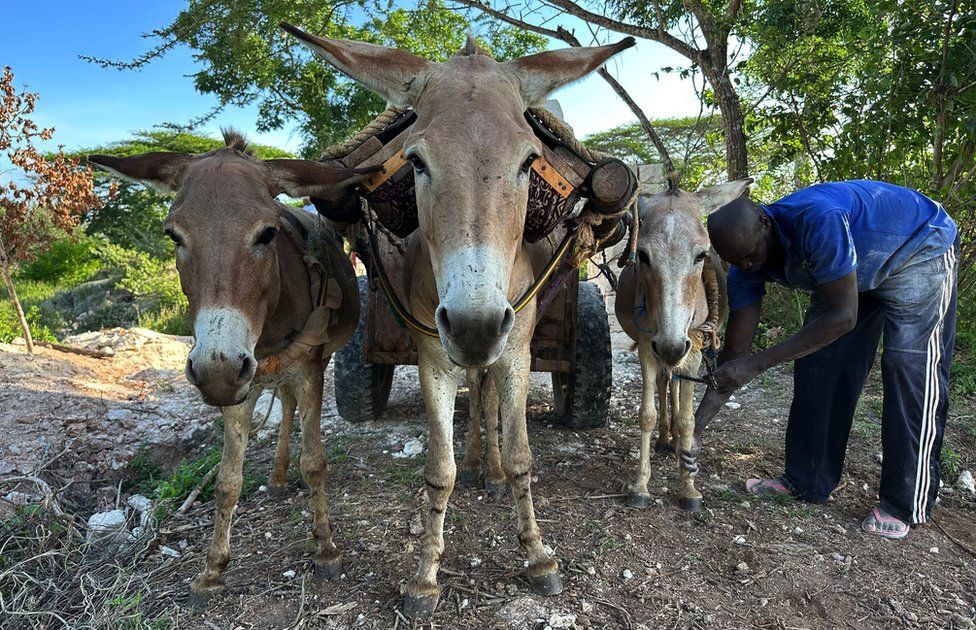-

-
-
Loading

Loading

Steve, a water seller from Nairobi, relied on his donkeys to transport his products to customers. However, his donkeys were stolen and killed for their skins, leaving Steve unable to work. This type of donkey theft has become increasingly common in many parts of Africa, driven by the demand for donkey skin in the global trade of Ejiao, a traditional Chinese medicine made from donkey gelatin. The Donkey Sanctuary, which has been campaigning against the trade since 2017, estimates that at least 5.9 million donkeys are slaughtered annually to supply the Ejiao industry. The demand for Ejiao is growing, but it is difficult to accurately determine the number of donkeys killed for this purpose. In Africa, where most of the world's donkeys reside, regulations surrounding the export of donkey skins vary across countries. However, the high demand and prices for skins fuel donkey theft, and the trade has led to the illegal movement of animals across international borders. In response to the decline in donkey populations, African governments and the government of Brazil are considering banning the slaughter and export of donkeys. For example, it is estimated that half of Kenya's donkeys were slaughtered between 2016 and 2019 for the skin trade. Anti-skin trade demonstrations have taken place in Kenya, with hopes that an Africa-wide ban will help protect donkeys and preserve their numbers. However, there is concern that bans in Africa and Brazil may shift the trade to other countries. Donkey populations in China have significantly decreased, leading Chinese companies to seek donkey skins from overseas sources. This has resulted in conflicts over the trade in various regions, with countries like Ethiopia closing down slaughterhouses in response to public protests. Pakistan is one country that has embraced the trade, establishing its own donkey breeding farm. The Ejiao market in China has grown substantially in recent years, raising concerns about public health, animal welfare, and illegal wildlife trafficking. The question of whether donkeys are more valuable alive or dead in a developing economy is a major consideration for policymakers. Donkeys serve as essential assets for small-scale farmers and are vital to rural communities worldwide. However, they do not reproduce quickly, which has heightened concerns about the shrinking donkey populations and the impact on the livelihoods of the poorest individuals. Animal welfare organizations like the Donkey Sanctuary and charities such as Brooke are working to protect donkeys and provide assistance to those who depend on them for work and education. They advocate for sustainable alternatives to the donkey skin trade, such as cellular agriculture, which produces collagen in labs. The hope is that Ejiao companies will invest in these alternatives to ensure the welfare and preservation of donkeys. Steve, for example, has been given a new donkey named Joy Lucky by Brooke, providing him with a renewed sense of hope and the opportunity to pursue his dreams. The fight against the donkey skin trade continues, with the goal of raising awareness and bringing an end to the inhumane treatment and exploitation of these animals.